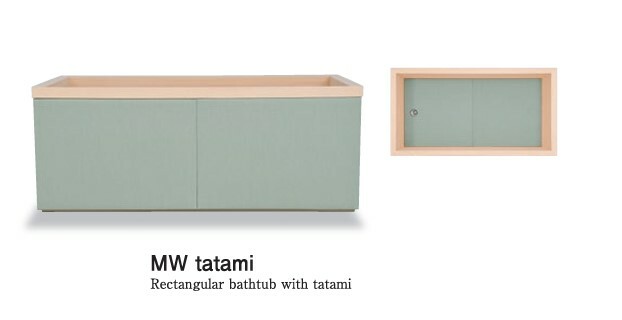Hospitality to feel the essence of Japan
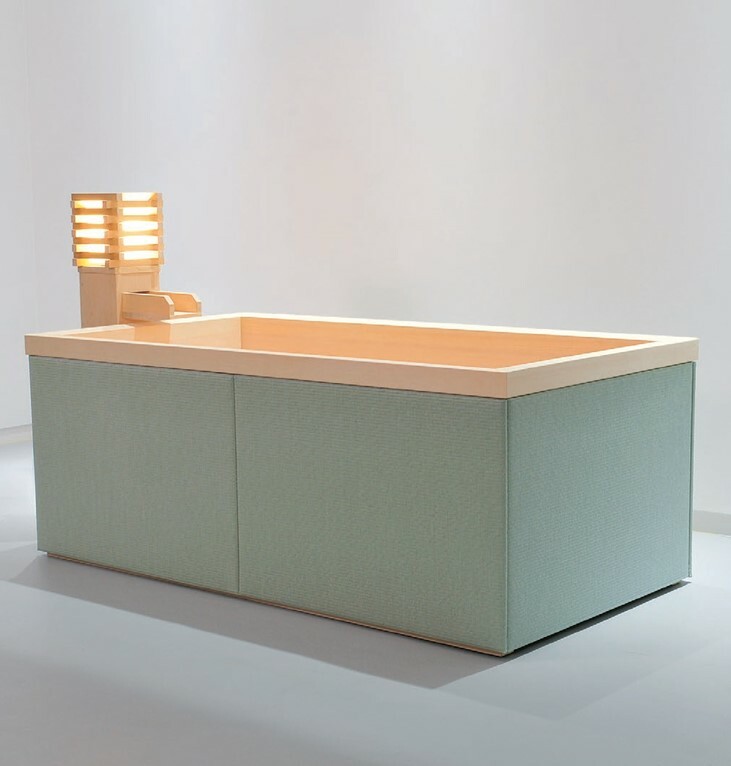
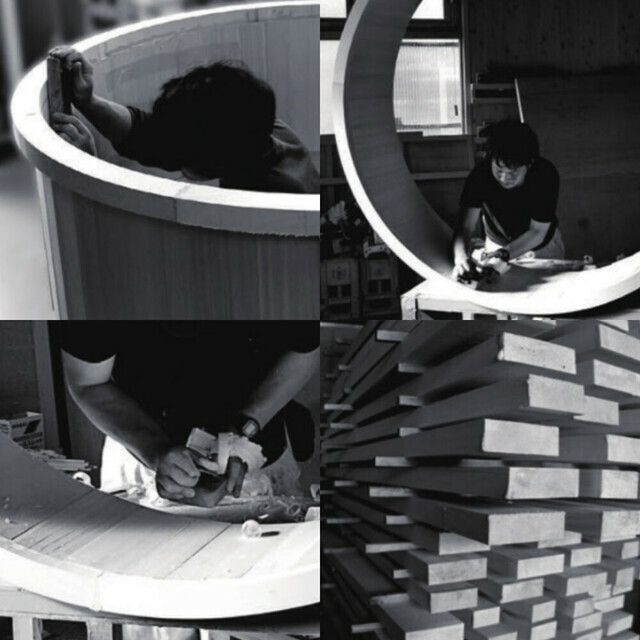
We are mainly using two types of natural woods for export models.
We handpick all the material to achieve the highest-quality in production, which brings you relaxation and peace of mind while bathing.
Kiso-Hinoki, in the middle of the mainland Japan. Aomori-Hiba, in the north. These two woods are particular to Japan and cannot be found anywhere else in the world.

Kiso-Hinoki (Chamaecyparis obtusa)-Japanese cypress, supreme quality
Was strictly protected in the Edo era (1603 to 1868). Only a limited umber of Hinoki in the Kiso region was cut down to build the most sacred shrines. This practice left us a chance to make quality bathtub with this finest material, and our company was named after "Hinoki" to embody the supremacy.
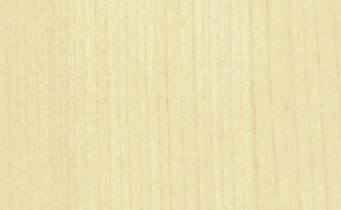
Aomori-Hiba (Thujopsis dolabrata)-Standard material
Has been even used to construct precious, historical buildings such as Japanese World Heritage "The Chuson-ji Temple Konjiki-do (Golden Hall)." Aomori is the name of a northern prefecture of Japan in cold climate. Aomori-Hiba that survive harsh winters is famous for its toughness and beauty.
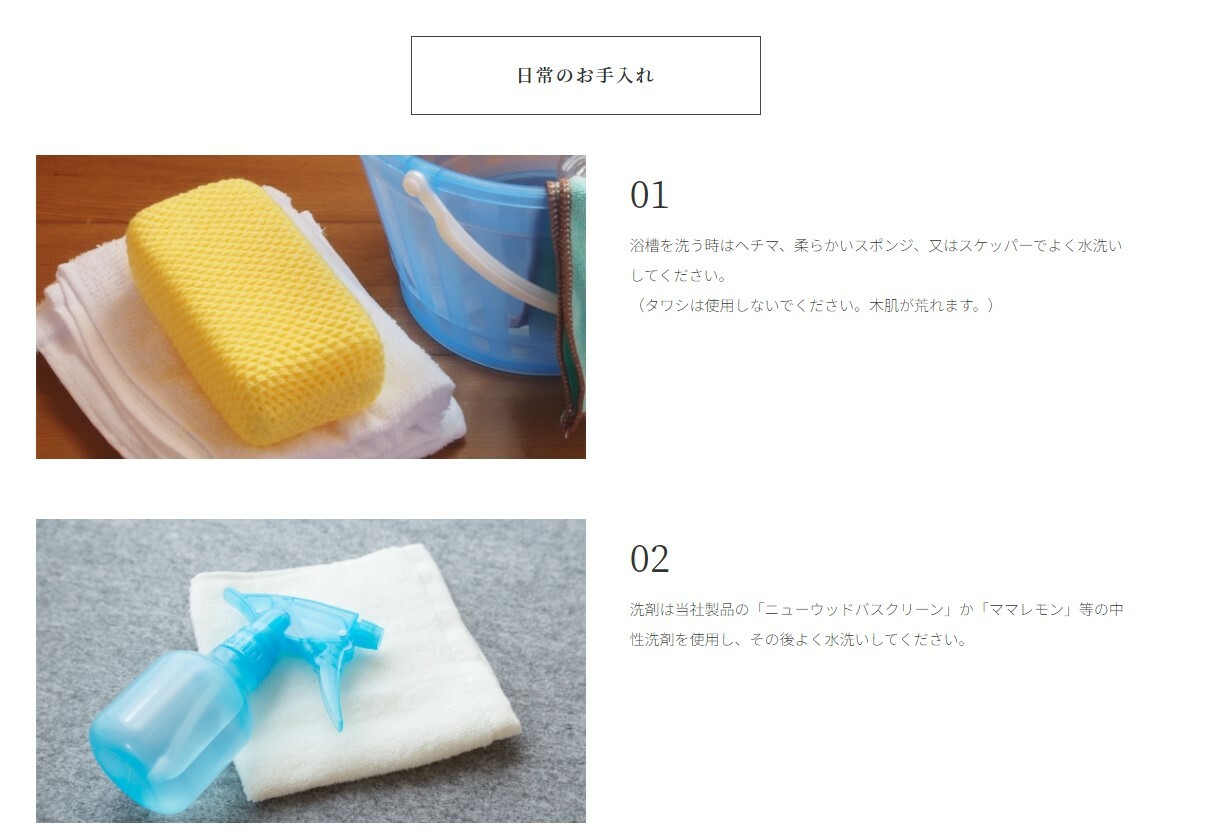
Daily care
1. When washing the bathtub, use a loofah, a soft sponge, or a scraper to rinse thoroughly with water. (Please do not use a scrubbing brush. It will roughen the wood surface)
2.Use a neutral detergent such as our New Wood Vaclean or Mama Lemon detergent, and then rinse thoroughly with water.
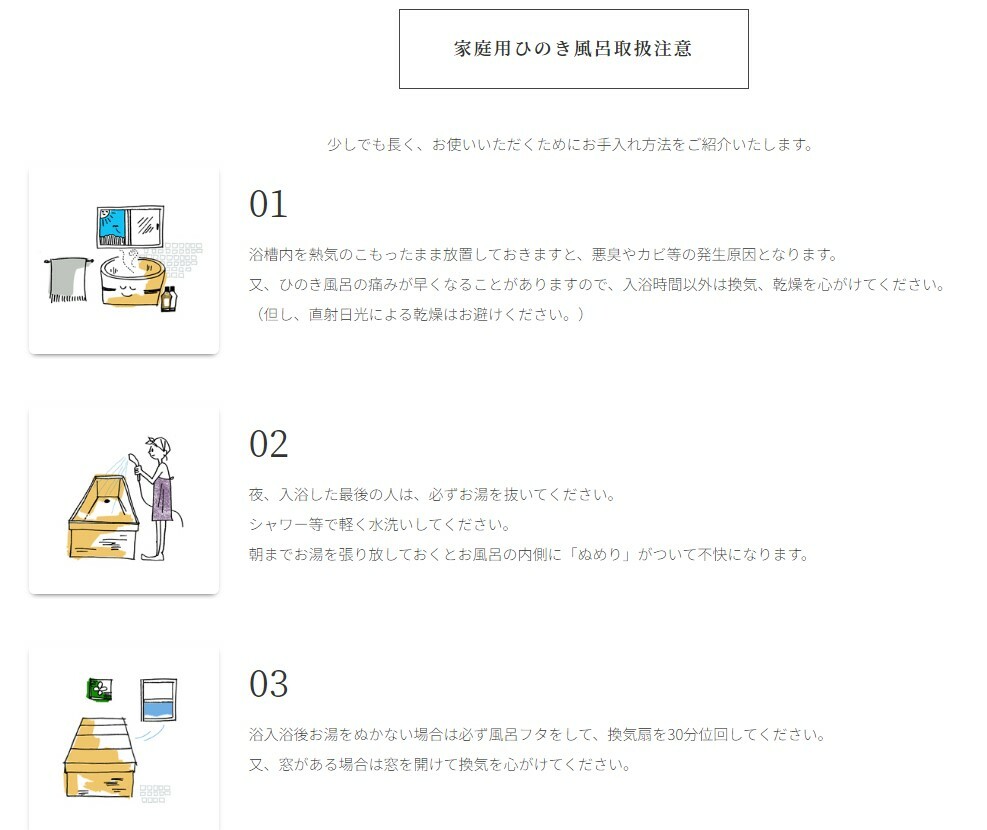
Careful handling of household cypress baths
We will show you how to care for it so that you can use it for as long as possible.
1. Leaving hot air inside the bathtub may cause foul odors and mold to develop. In addition, cypress baths may cause pain to occur quickly, so please be sure to ventilate and dry the area outside of bathing time. (However, please avoid drying in direct sunlight.)
2. The last person to take a bath at night must drain the hot water. Please wash it lightly with water. If you leave the hot water running until morning, the inside of the bath will become slimy and uncomfortable.
3. If you do not rinse the bathtub after taking a bath, be sure to close the bath lid and run the ventilation fan for about 30 minutes. Also, if there is a window, open it to ventilate the room.
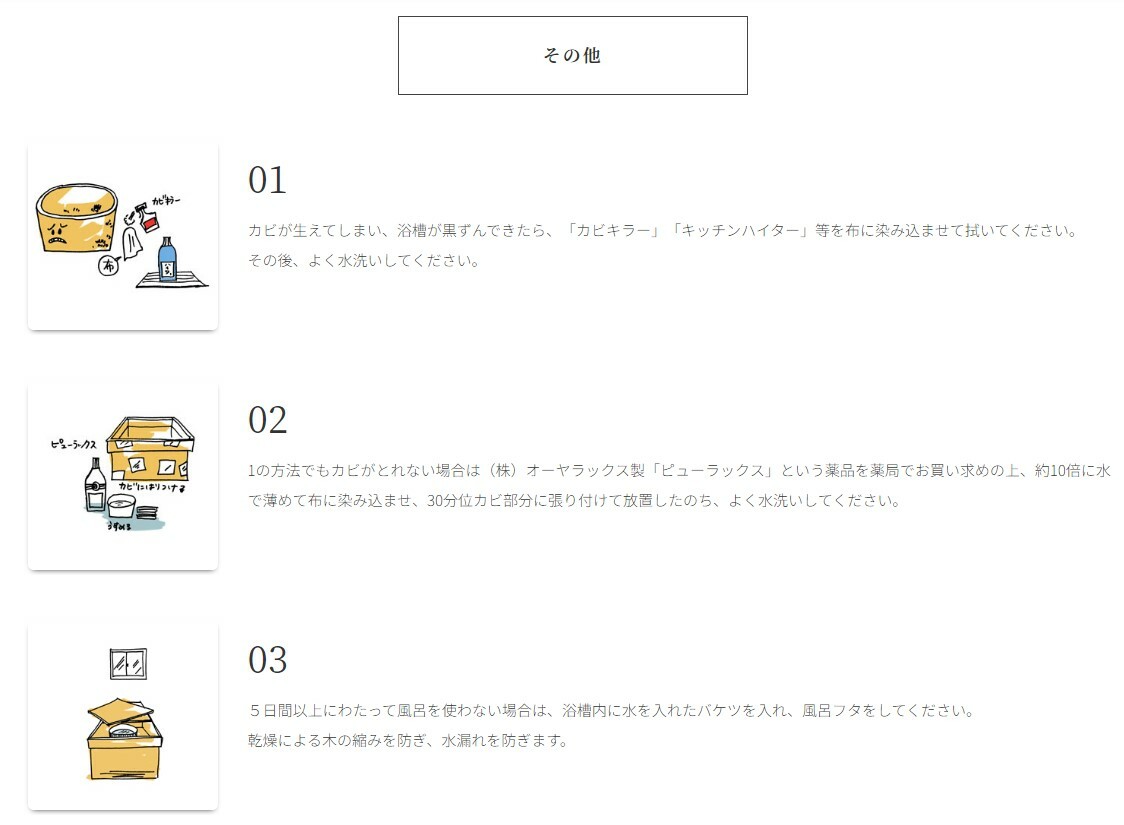
1. If mold has grown and the bathtub turns black, wipe it with a dampened with "Mold Killer" or "Kitchen Hyter". Then, wash thoroughly with water.
2. If the mold cannot be removed even with method 1, purchase a drug called "Purax" manufactured by Oyalux Co. Ltd. at a pharmacy. Dilute it approximately 10 times with water, soak it into a cloth, and leave it on the mold area for about 30 minutes. Afterwards, was thoroughly with water.
3. If you are not using the bathtub for more than 5 days, place a bucket of water in the bathtub and close the lid. This is to prevent wood from shrinking due to drying and prevents water leakage.
